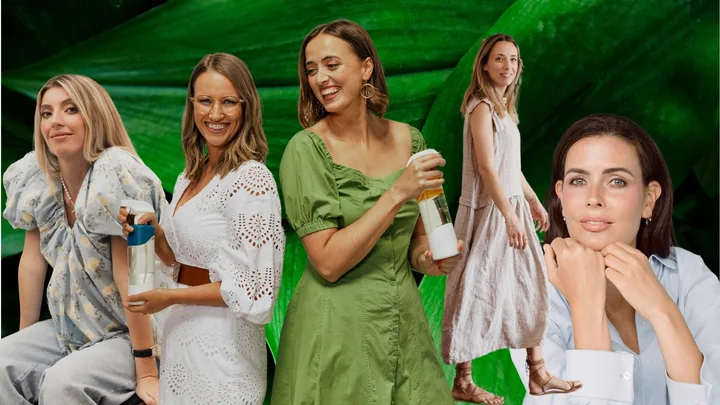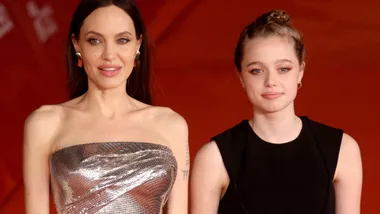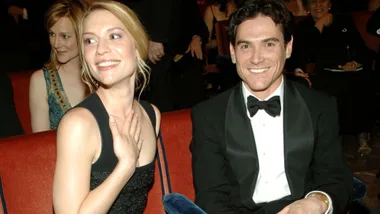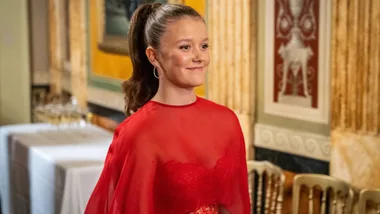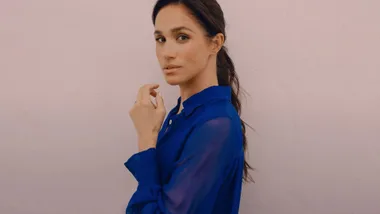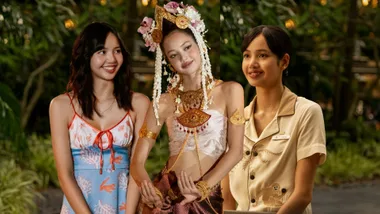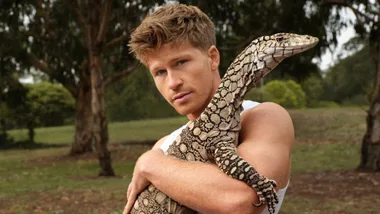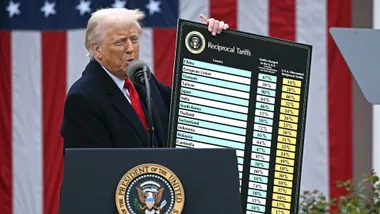Sustainability isn’t just about substituting a coffee cup for a keep cup or reducing you shower time (although every bit counts!). It’s about considering the planet and your impact in every decision you make. Fortunately, there is a plethora of game-changing people out there who are disrupting the sustainability space and rewriting the green print for a better planet.
To celebrate these game-changing brands, products and businesses, marie claire has launched it’s first ever Sustainability Awards in partnership with Volvo.
Recruiting the help of an esteemed panel of experts, including Andie Halas (Founder and chair or Thread Together), Clare Press (Activist, author and changemaker), Lottie Dalziel (Founder of Banish, advocate and sustainability expert) and Georgie Abay (Editor of marie claire), our judges have narrowed down eight winners from a list of 28 incredible eco-warriors.
So without further ado, put your hands together and read on to see our full list of incredible winners below.
Accessories Category Winner: Natalie Marie Jewellery
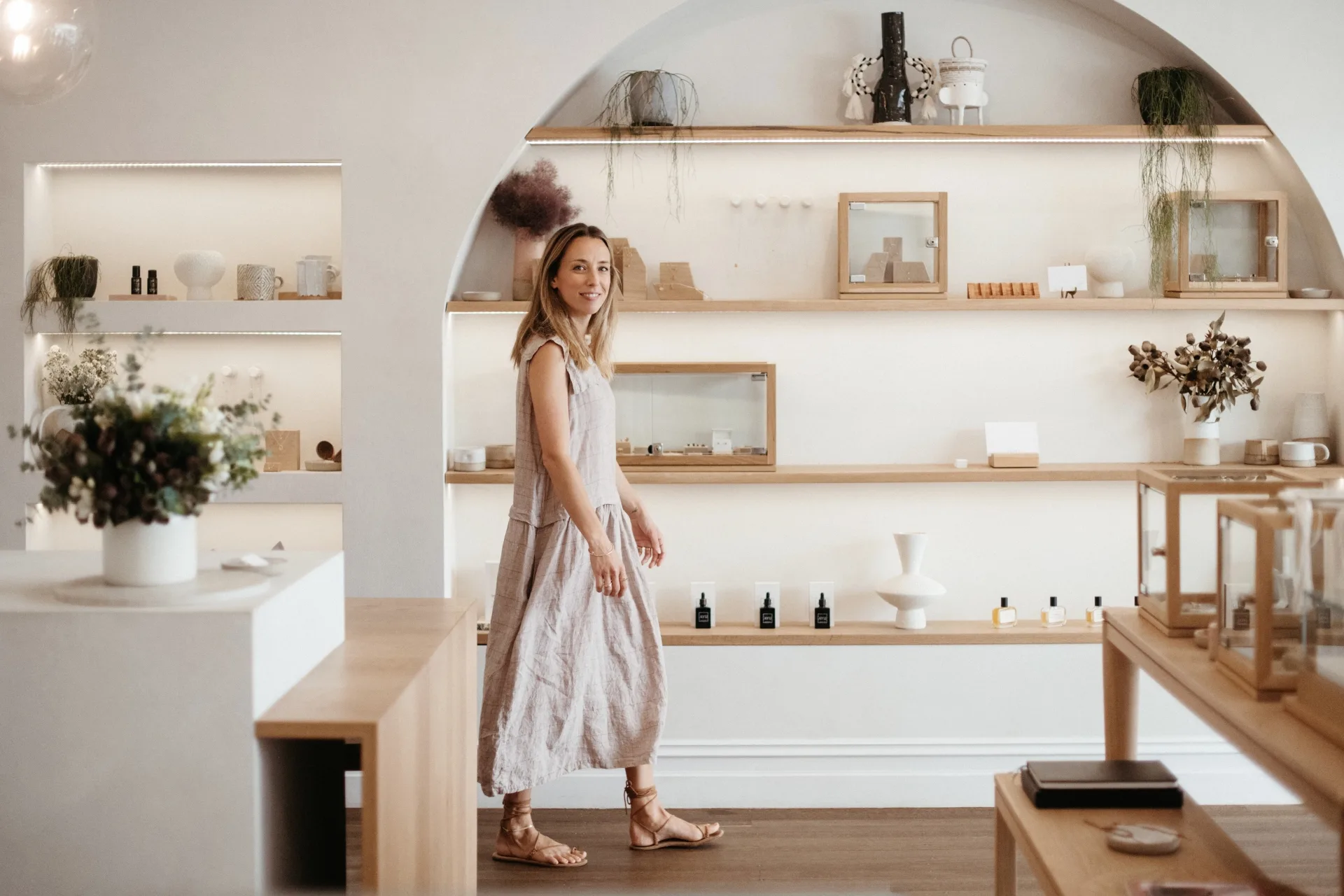
To create beautiful and sustainable jewellery, Natalie Fitch has to go the extra mile – and she does that happily. Her brand leaves no sustainability stone unturned. It handmakes each piece
to order so there’s no dead stock, it uses ethically sourced and recycled materials, and it even incorporates metal filings and offcuts into its pieces.
Though no easy feat, Natalie Marie Jewellery works with each cog in the supply chain to maintain high sustainability standards, including using 100 per cent recycled sterling silver and 70 per cent recycled gold.
“Our brand is built around a direct-to-consumer, made-to-order business model, enabling us to effectively minimise waste and only create to demand,” says Fitch from her showroom on Sydney’s Northern Beaches (pictured above). “Our pieces are handcrafted to order in our Avalon studio, which provides us with a great deal of control over materials, supply chain and
production methods.”
“There is a considerable amount of misleading information around sustainable jewellery, which can be confusing for consumers,” she adds. “Our approach to counteract this is
to get really granular on the details and present only clear, data-backed claims.”
If this sounds a bit dry, fear not: at the heart of the enterprise are beautiful pieces of jewellery, lovingly designed, passionately crafted and – yes – sustainably produced.
Fashion Category Winner: Maggie Marilyn
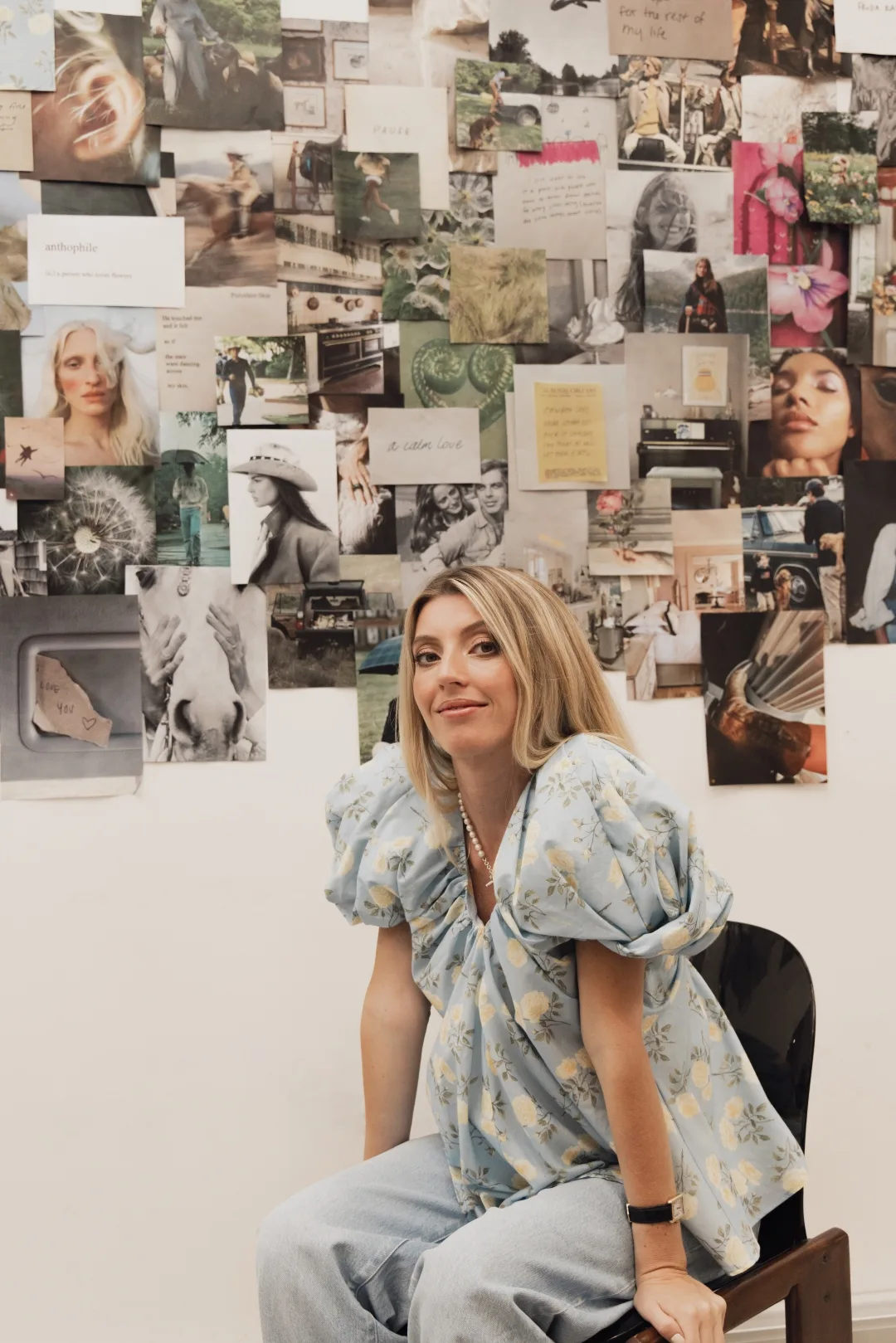
Maggie Marilyn doesn’t solve just your style problems. Yes, its collections are filled with items you’ll wear again and again: striped shirts, classic blazers, organic cotton tees that fit perfectly. But there’s added comfort in knowing you’re wearing fashion that’s not only chic but sustainable.
It’s a climate-positive brand, so it goes beyond net-zero emissions and creates an environmental benefit by removing additional carbon from the atmosphere. “Buy as you need, repair what you can and repurpose what you can’t,” is the brand’s philosophy.
“Maggie Marilyn believes that our planet’s survival hinges on its ability to dream up a better tomorrow, which is why we believe the future of fashion is rooted in transparency, circularity, regeneration, and inclusion,” says its New Zealand founder and designer, Maggie Hewitt. Since its beginnings in 2016, Hewitt has been dedicated to creating a brand with staying power that works for the people who wear it.
Back in 2022, Maggie Marilyn received B Corp certification, joining the world’s fashion brands ranked highest for social and environmental impact. And while its achievements
in sustainability are impressive, the brand’s journey hasn’t been straightforward.
“The challenges of re-calibrating the fashion industry to one that puts the planet and its people first are ongoing,” says Hewitt. “Also, a lot of customers remain unaware that the word ‘sustainable’ is unregulated, which means it’s susceptible to green-washing.”
The brand uses FibreTrace to verify the supply chain from raw fibre to shop, and is working to transition from natural fibres to regenerative ones, such as Good Earth Cotton. “Nothing is impossible when you combine collective force with brave ideas,” says Hewitt.
Beauty, Health and Wellness Category Winner: Emma Lewisham
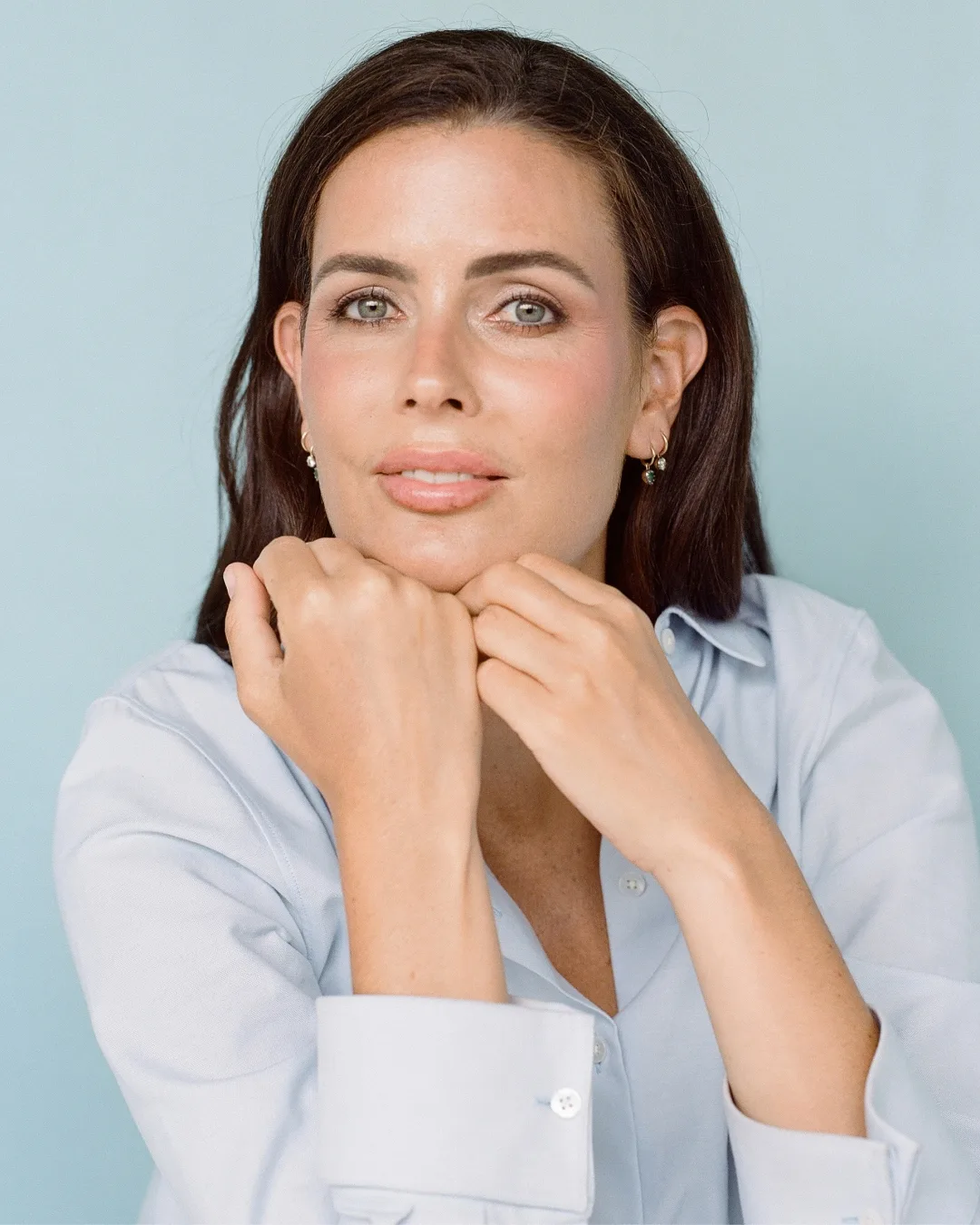
What do beauty-obsessed tweens and eco warrior Dr Jane Goodall have in common? They are all fans of Emma Lewisham skincare. Tweens love it for its effectiveness and cool-girl aesthetic, but getting the endorsement of legendary conservationist Goodall required some major steps, such as becoming the world’s first certified climate-positive beauty brand.
Lewisham (pictured) launched her brand in 2019, believing she had “an ethical and environmental responsibility to change how business is done”. A driving force behind her mission is the current economic model. “Finite resources are extracted to make products that are then thrown away. It’s simply not sustainable,” she says. “We’re dumping unprecedented amounts of waste in our oceans and burying non-biodegradable products in our earth.” The beauty industry creates about 120 billion units of packaging waste every year, and the World Bank estimates climate change will drive up to 132 million people into poverty by 2030.
Lewisham focuses on refilling and reusing. “The sale of our refills has helped save more than 80 tonnes of carbon emissions. Our big point of difference is … that our returns program is focused on refilling, not recycling. We ask customers to return their empty refills to us so we can sterilise them, refill them and then resell them. Any packaging that can’t be refilled, we pay to be properly recycled through our specialised partner,” she explains.
“It was incredibly special to have the achievement [of becoming the world’s first certified climate-positive, fully circular designed beauty brand] endorsed by Dr Jane Goodall. She
has been an inspiration of mine since childhood.”
Home and Lifestyle Category Winner: Pleasant State

It’s hard to clean up the cleaning industry, but that’s where Pleasant State comes in. Since launching the just-add-water home-care products in 2020, co-founders Ami Bateman and Sian Murray have revolutionised the industry by keeping more than 250,000 plastic bottles out of landfill. “Our purpose is to change the way we clean homes for good by providing zero-waste and verified non-toxic cleaning products that actually work,” say the pair. “Being a purpose-led business means leading with hope and empowering individuals to take the future of their health and the planet into their own hands.”
The concept is simple: replace bottles of liquid products with effective, non-toxic cleaning bars that dissolve in tap water to do the same job, but better.
The company declares that doing good is good for business. And in the marketplace, this good business is cleaning up.
Parenting Category Winner: Toy Libraries Australia
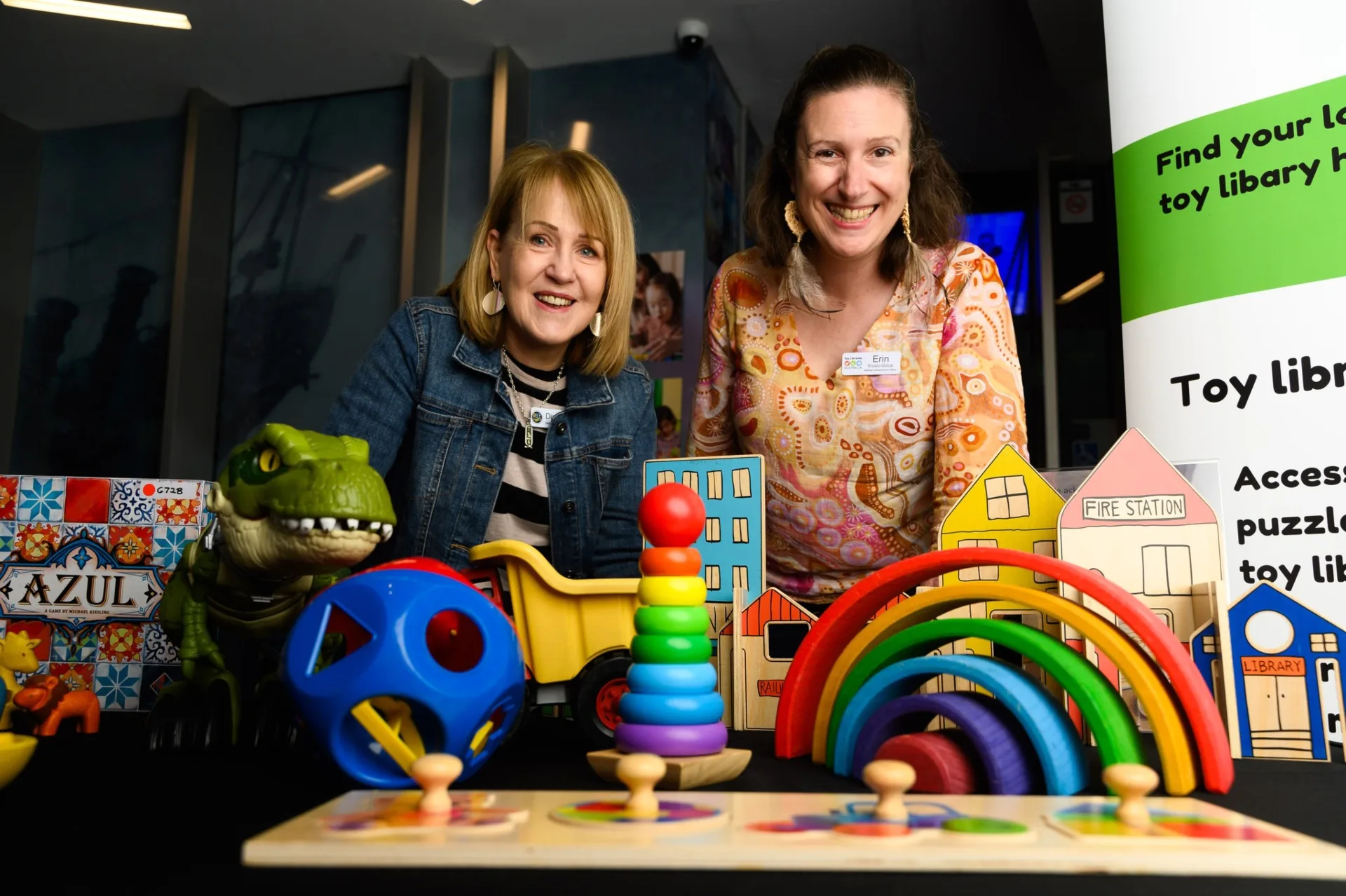
Shiny new toys are always a big hit when they come home, but on average kids lose interest in them within 36 days, studies have shown. And there’s an additional environmental cost, as 51 per cent of toys are discarded within 12 months of purchase. That’s 100,000 tonnes of unwanted toys every year. But by focusing on the power of sharing, reusing and reducing waste, toy libraries are fighting back.
The first toy library in Australia was opened more than 50 years ago, in Melbourne. Today, Toy Libraries Australia is the peak body behind more than 280 not-for-profit toy libraries, which lend families educational and fun toys for a fraction of the cost of buying new.
“Sustainability is central to toy libraries,” explains Debbie Williams CEO of Toy Libraries Australia. Their aim is to purchase “durable toys that can be played with for many years, giving new life to toy donations, and repairing old toys.” This means the same toy can be played with and loved by many families in their lifetime.
A large part of what Toy Libraries Australia advocates for is the repair and restoration of toys, to keep them in circulation longer and out of landfill.
The registered toy libraries have a total of 480,000 toys (worth about $24 million), which are in use in communities throughout Australia. Each toy is vetted to meet the “Toy Community” safety requirements and buyers consider many factors, but the key focus is on quality, fun and educational toys, games, puzzles and activities for children aged primarily 0-12 years old.
Today, 183,000 families borrow from toy libraries around the country but this involves a mammoth effort that is volunteer-led. “Toy libraries cannot run without the 11,000 volunteers who keep [it going] each year,” explains Williams. “Many of the volunteers are women with young children who volunteer their time to deliver a service loved by many.”
Food and Drink Category Winner: Ugly Vodka
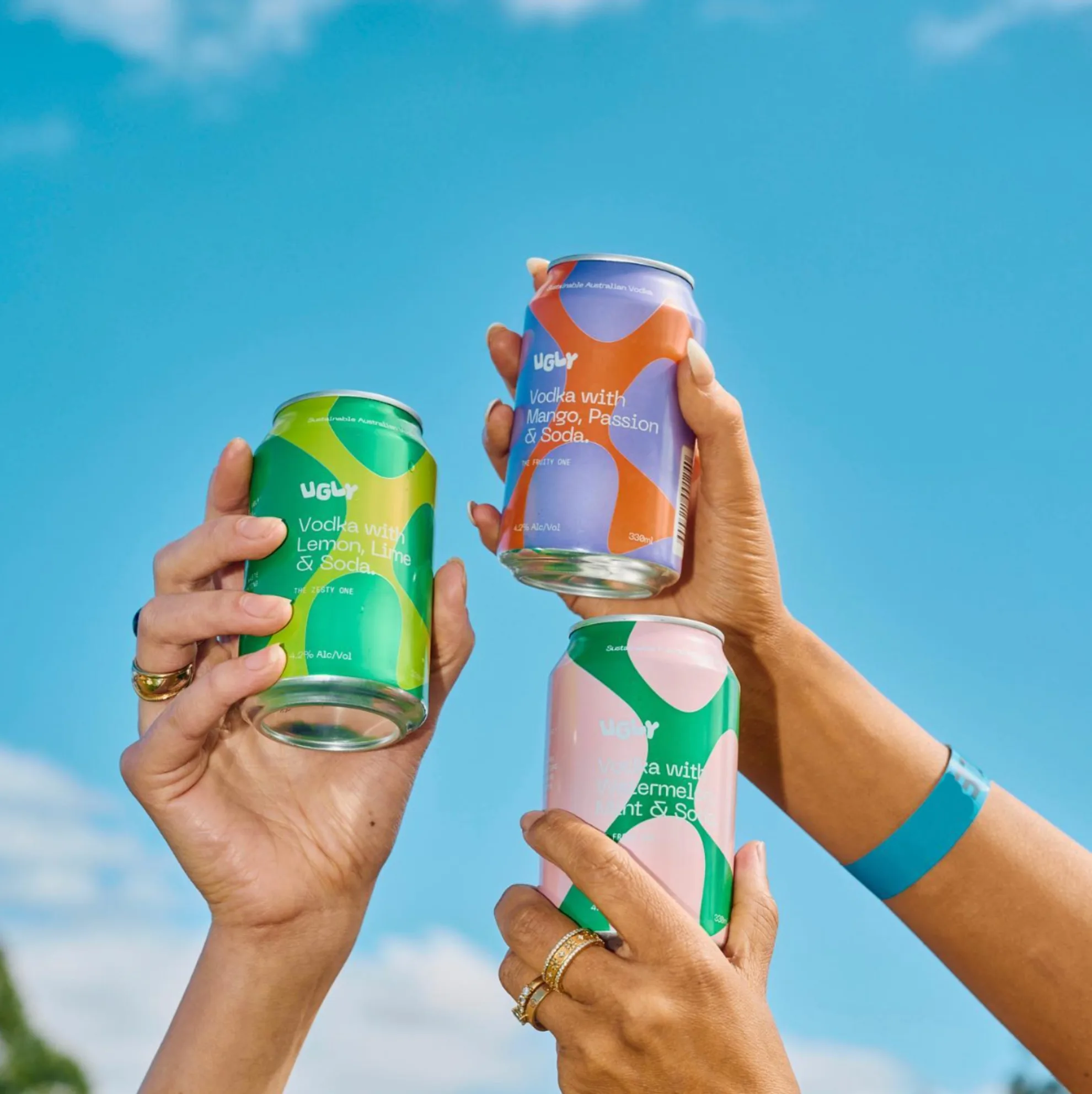
It’s not often you get to drink with a completely clear conscience. But the creators behind sustainable alcohol brand Ugly Vodka have given you one less thing to worry about. Despite the name, there’s a pretty cool story behind Ugly Vodka.
To combat the food wastage crisis, which sees thousands of imperfect apples discarded each day, Ugly Vodka takes those “ugly” apples and crafts a delicious and planet-positive brew, all within Victoria. In its first batch alone it repurposed 20,000 kilograms of ugly apples that would have otherwise been discarded to landfill – in turn producing methane. And it doesn’t stop there: Ugly Vodka’s distinctive bottles use a third less glass than traditional ones, further reducing its footprint.
Travel Category Winner: Freycinet Lodge in Tasmania
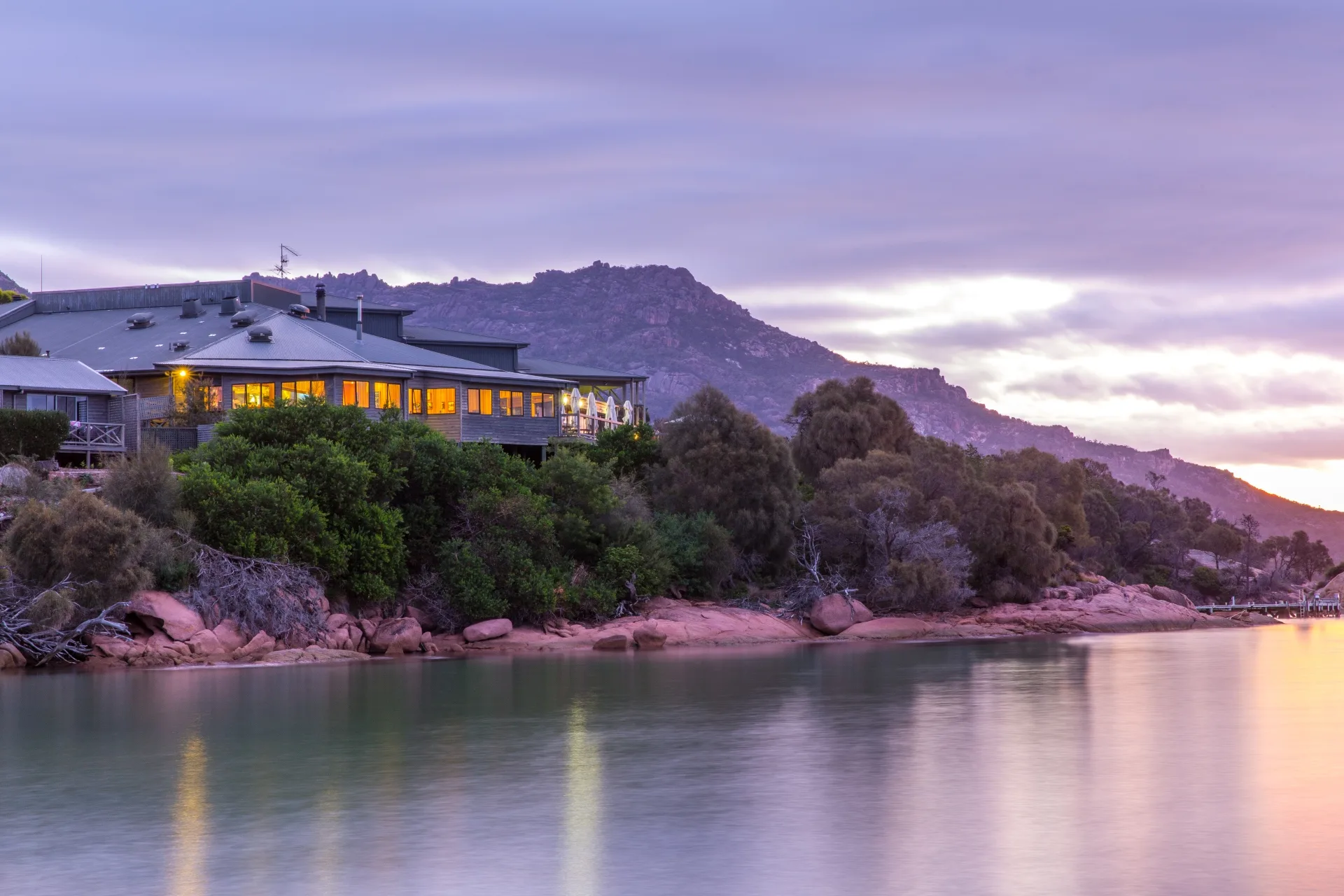
One of the most important aspects of sustainable tourism is preserving our natural resources for many generations to come and Freycinet Lodge does just that. Located a 2.5-hour drive from Hobart, this accommodation really showcases Tasmania’s raw beauty.
Opening in 1932, the lodge is one of the only accommodation options in the Freycinet National Park. Each of the facilities and cabins are linked by raised boardwalks to preserve nature and let the animals continue exploring, so it’s no wonder Freycinet Lodge is renowned for its protection and preservation of our planet.
Freycinet Lodge is accredited as part of the Australian Tourism Accreditation program and proudly holds an EcoStar Tourism Accreditation, the highest level
of recognition. The lodge has also received many accolades both nationally and internationally over
the years for the unique architectural design of the coastal pavilions, in addition to numerous boutique and sustainable wedding awards.
With sweeping views over the crystal-clear Great Oyster Bay and a stone’s throw from the iconic Wineglass Bay, Freycinet Lodge offers an unforgettable experience. Guests can choose from coastal, bushland or mountain terrace accommodation options, which highlight different aspects of Tasmania’s unique landscape. Accommodation ranges from four
to 4.5-star one-room cabins and luxurious pavilions, so there is something for everyone.
As the name suggests, there is one central lodge at Freycinet, which is the heart of the hotel. The lodge features three restaurants offering contemporary, seasonal and local produce. A daily breakfast is included and provided for all guests.
Additionally, visitors are offered a plethora of invigorating outdoor activities, such as discovering secluded “squeaky clean” beaches that are home to pods of dolphins, guided walking tours in the mountains, and e-bike hire.
Hall of Fame: Ronni Kahn
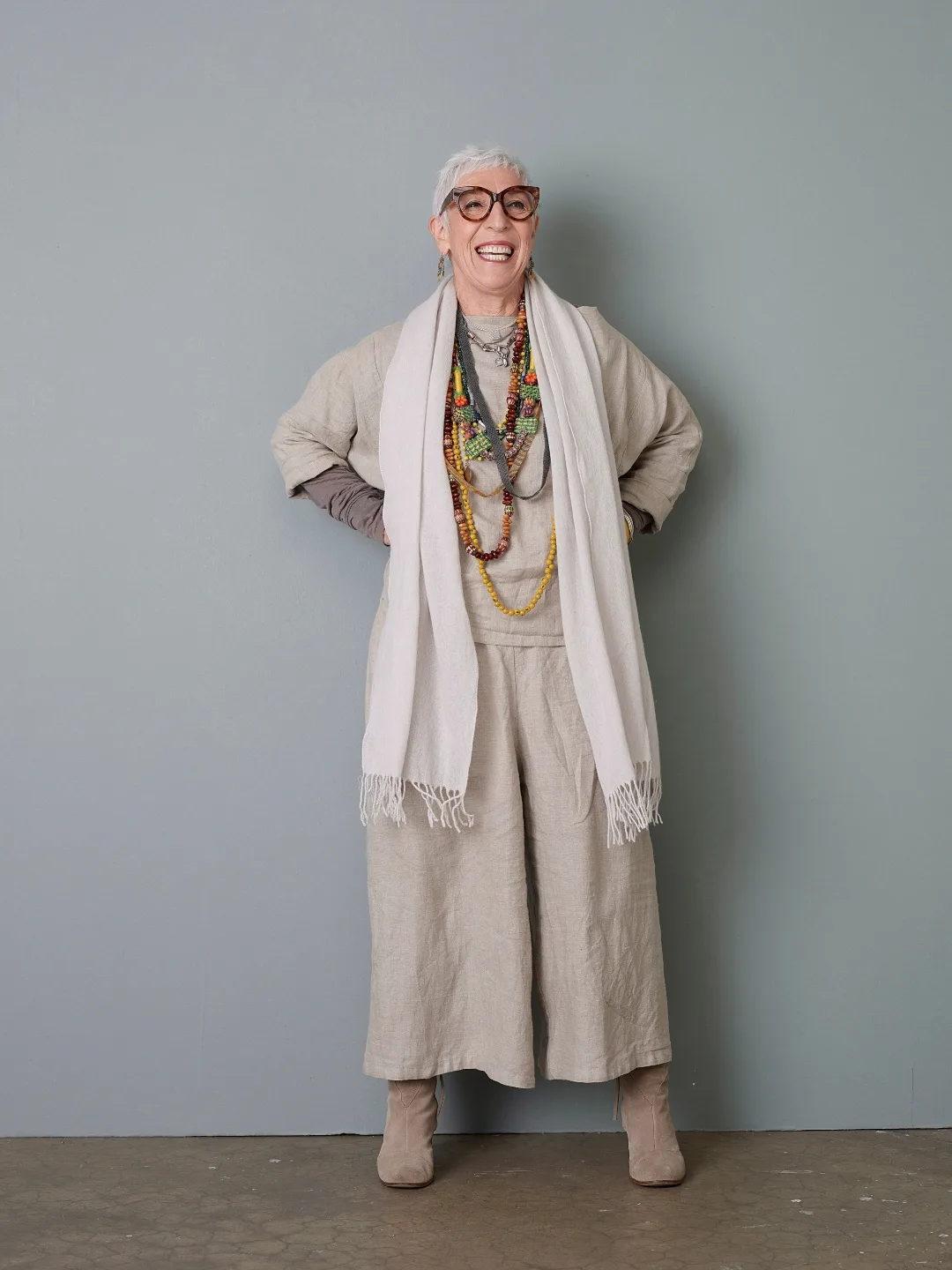
Reducing food waste to feed the hungry is Ronni Kahn’s mission in life. And she’s been wildly successful. By founding Australia’s leading food rescue charity OzHarvest in 2004, the social entrepreneur has transformed the food waste landscape nationwide over the past 20 years.
OzHarvest works to redistribute food to those in need. The simple concept came about from Kahn’s previous work in the events industry, where she witnessed the stark contrast between the many people living with food insecurity and the thousands of kilos of food left over after corporate events. She connected the two and started redirecting surplus food from her events business to charities.
Due to legislation, this was no easy task, so Kahn lobbied governments to pass a civil liabilities act allowing organisations to give food away without fear of liability. This was passed in 2005 in NSW – with other states following suit – and removed the key hurdles around food redistribution.
Not only does OzHarvest provide the avenue for surplus food to those in need, Kahn also advocates for a reduction in food waste in households and businesses. She was named
Local Hero of the Year in 2010 and recognised with an Officer of the Order of Australia (AO) in 2019.
OzHarvest has now expanded to Kiwi Harvest (New Zealand), SA Harvest (South Africa), Japan Harvest and UK Harvest. The organisation here has grown to more than 300 staff and 3000 volunteers nationwide.
After leading OzHarvest for the better part of two decades, Kahn passed the CEO baton on in March this year, but she will remain involved in her life’s most fulfilling work. And Australia will be forever grateful.
For more, go to our 2024 Sustainability Awards hub.
